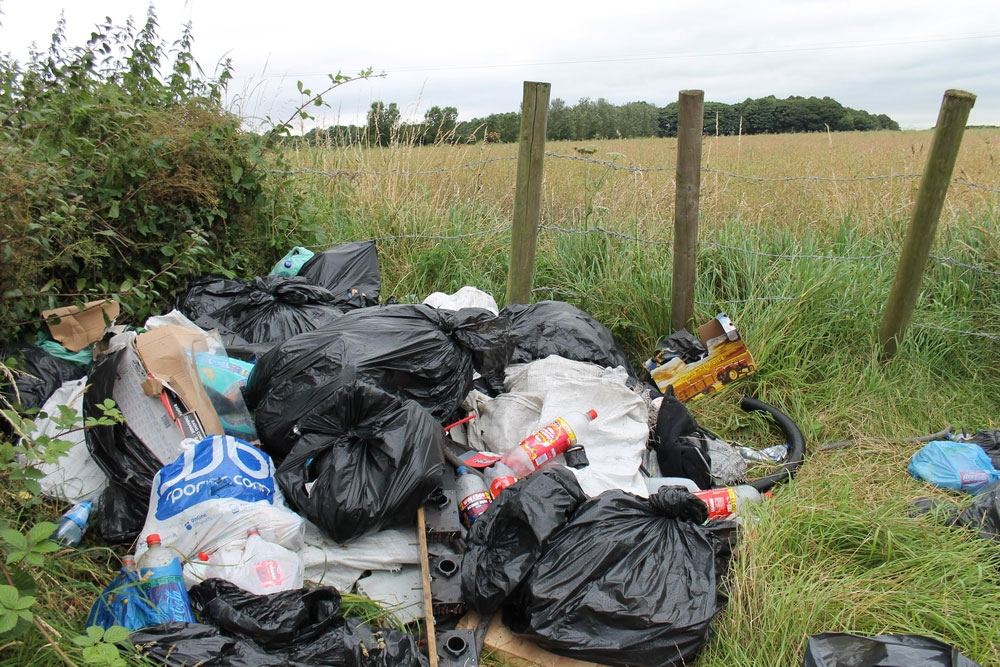COVID-19 has seen many changes in the lifestyles of some, both positive – e.g. spending more time with family, and negative – e.g. being inconvenienced by the lack of normality and day to day services.
We saw an increase in people spending more time at home during lockdown. Some finally had an opportunity to undertake those ‘projects’ they didn’t ordinarily have time for, turn their hand to a little DIY or just have a good clear out. But where has all this extra waste been going?
At the start of lockdown nearly all Local Authorities immediately closed Household Waste and Recycling Centres (HWRCs) as they saw a huge rise in people wanting to dispose of their unwanted items and they could not operate safely without no social distancing measures in place, so people with cars full of rubbish were turned away at the gates.
This issue was coupled with many regular household waste collections being reduced due to staff shortages and private waste companies becoming inundated with requests for skips that exceeded their capacity. Inevitably, the demand to dispose of extra lockdown waste, saw an increase fly-tipping of household waste.
The appearance of unlicensed waste removal ‘man with a van’ type charging a’ too good to be true’ price to clear waste away. Unbeknown to the householder who thought they may have been doing the right thing, this waste was more than likely disposed of unlawfully.

Throughout lockdown, farmers across the country have been faced with the unwanted burden and cost of clearing up waste that was not theirs. But there were additional health concerns around handling fly-tipped waste that has come from another household. Can I touch it? Could this waste be contaminated? Should I move it? Where can I dispose of it?
Many farmers that are affected by fly-tipping want to get rid of it as soon as possible to prevent fly-tips being an advert for more potential fly-tippers seeking a discreet spot. COVID-19 restrictions meant that this added significant difficulty in the disposal of wastes. Although back in May, Defra had advocated that local authorities and the Environment Agency take a flexible and pragmatic approach to the issue, some farmers were concerned that they would be breaching rules and may get into trouble for storing wastes they had cleared from their land for longer than normal and no clear instructions from the authorities.
What is the NFU doing?
The NFU was instrumental in communicating these issues to Defra and influencing their guidance for local authorities to re-open HWRCs. As the easing of lockdown saw local sites operating in a new ‘COVID-friendly’ and controlled manner, we hope to see a reduction in reported incidents of fly-tipping (providing people are patient with the queues and checks).
But this issue has not gone away and there are many lessons to be learnt from this period of lifestyle change. The NFU’s environment forum will be instrumental in communicating the asks of farmers and land managers for a fairer approach on fly-tipping on privately owned land. It simply should not be the responsibility of the land manager to deal with this crime and more needs to be done to educate the householder on their legal obligations. That is why the NFU has taken the decision to organise a summit later in the year, inviting a select list of stakeholders who can make progress in addressing these issues on fly-tipping.
However, we need the data behind us to make our case. That’s why I urge anyone who falls victim to fly-tipping, especially at this strange time to report it to your local authority (or Environment Agency if it’s larger or hazardous) so that Defra is also aware of the scale of the issue on private land. This will enable us to make a real change.
I am particularly saddened to see the impact on wildlife from fly-tipping. We have a very special countryside, which as farmers we are privileged to work in. Such a landscape does need to be cared for and tipping out our rubbish is not the way forward. There are powers that magistrates can bring into force, but we need to gather evidence to find perpetrators and deliver meaningful deterrents. We need to see more actions to help keep our ‘countryside cleaner’. The whole system from packaging design, recycling, landfill tax and tip opening hours needs to make it easier to reduce, reuse and recycle our consumer purchases.
More of the NFU's work on rural crime:
- Coronavirus: The NFU's latest advice on fly-tipping
- Prevent and report rural crime with the NFU's dedicated hub
- NFU advice on preventing access to farmland
- Warning: Lockdown waste scams on farm
- NFU highlights impact of fly-tipping on BBC Crimewatch Roadshow
You might also be interested in:
- Watch again: Dairy contracts consultation - why it matters
- NFU President responds to Making Tax Digital next steps
- Defra SoS says nature to be at heart of green recovery
- Public backing of British farmers grows to record high
- Change needed in addressing farm safety issues
- Farm Safety Hub: Your guide to staying safe on farm

